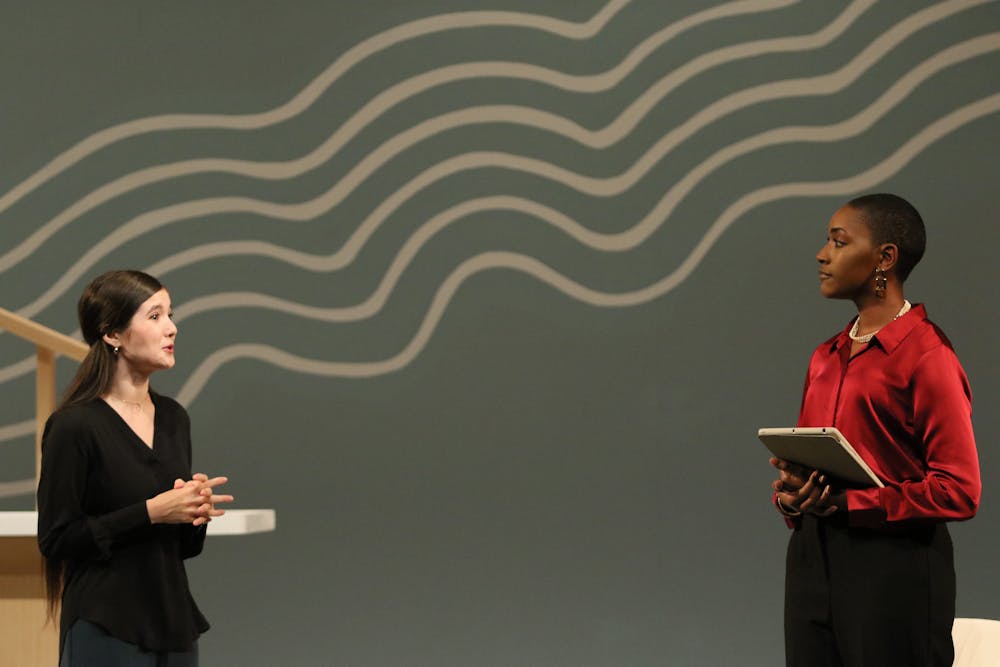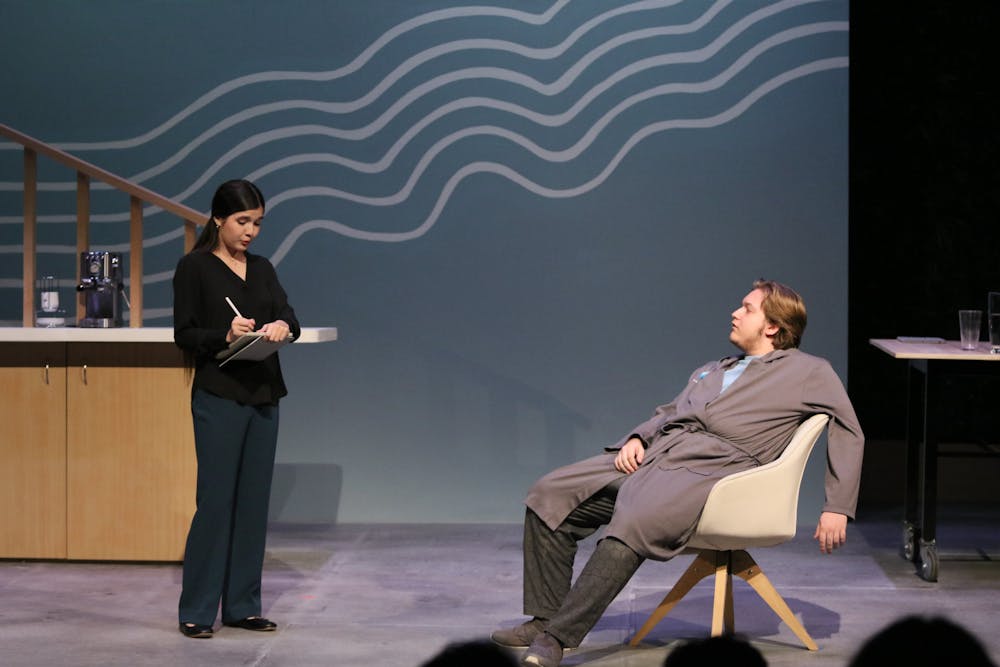Have you ever imagined that men could actually be held accountable for their actions? Though it might seem like a far-off fantasy, "The Gradient" paints a picture-perfect world where this is possible.
"The Gradient" is a satirical comedy theater show set in the near future. Hosted by ASU, this performance is a promise of an alternative reality where men accused of sexual misconduct are forced to be rehabilitated into responsible citizens.
"The Gradient" is the name of the facility where, similar to prison, men are rehabilitated and protected from society until they become better citizens. But instead of doing pushups, men are given therapy sessions with licensed professional, but the conversations are plugged into an advanced algorithm.
The main character is Tess, a new employee who is eager to make a difference in a world filled with difficult men. Her clients are all egregious, but there is one in particular who challenges her motivation. Jackson, the antagonist of the show, might resemble your local frat guy with zero self awareness — but multiply that by 100 and put him in his first therapy session.
Jackson refuses to dabble in the concept that what he did to his girlfriend was morally wrong, because like many people, his boundaries of what sexual assault is are limited to the most extreme scenario. Instead of being open-minded when Tess is forward with him about his faults, he looks beyond her guidance and begins flirting with her.
The story of "The Gradient" is closer to our own reality than the audience would have probably preferred. Jackson is the antagonist, so it's easy to want him to come around, realize his faults and own up to his mistakes. But this story isn't a fantasy — it's a satire set in the near future.
“What I related to was the story of this young woman who comes into this new job with so much idealism, so much of a desire to change the world and really believes in it, and then the process of her waking up to the fact that it's not all it's cracked up to be.” said director Joya Scott. “I thought that was very moving.”
Like many other modern women, Tess is trapped in a world where, in spite of her efforts to fix the male population, her life is going to be tarnished by men regardless. When she attempts to speak with her boss about the microaggressions she received from Jackson during his appointments, her boss told Tess to come to her when she had a real problem.
If Tess stays at the Gradient lab, Jackson's behavior will continue to threaten her psyche. But if Jackson leaves, he could re-offend and come back to the lab anyways. Regardless, the Jacksons of the world will never leave as long as Tess lives in a man's world.
Read More: 'Eva Luna' premieres at ASU, showcasing the play in English for the first time
In the final monologue, the play delves into its most raw and emotional content that left a clear impact on those watching.
The performance attempts to answer the question: is it possible to mass produce forgiveness? Jackson's case might be an example that we cannot.
"The Gradient" suggests that even at its worst, human nature is stronger than any artificial intelligence model.
The strained and complicated dynamic between Tess and Jackson is something that is deeply rooted in centuries-old issues of gender, something that cannot be explained by the artificial intelligence in the show.
"AI does not even come close to accomplishing what humans can, especially in terms of emotional depth and intelligence." said Marlowe Finch, who played Lewis, a coworker of Tess. "AI has nothing on the human."
Editor's note: The review presented in this column are the author's and do not imply any endorsement from The State Press or its editors.
Edited by Andrew Dirst, Sophia Ramirez and Madeline Schmitke.
Reach the reporter at ebmosier@asu.edu and follow @eleribmosier on X.
Like The State Press on Facebook and follow @statepress on X.
Eleri is a senior studying interdisciplinary studies, english and sociology. This is her second semester with The State Press. She has also worked in retail.






